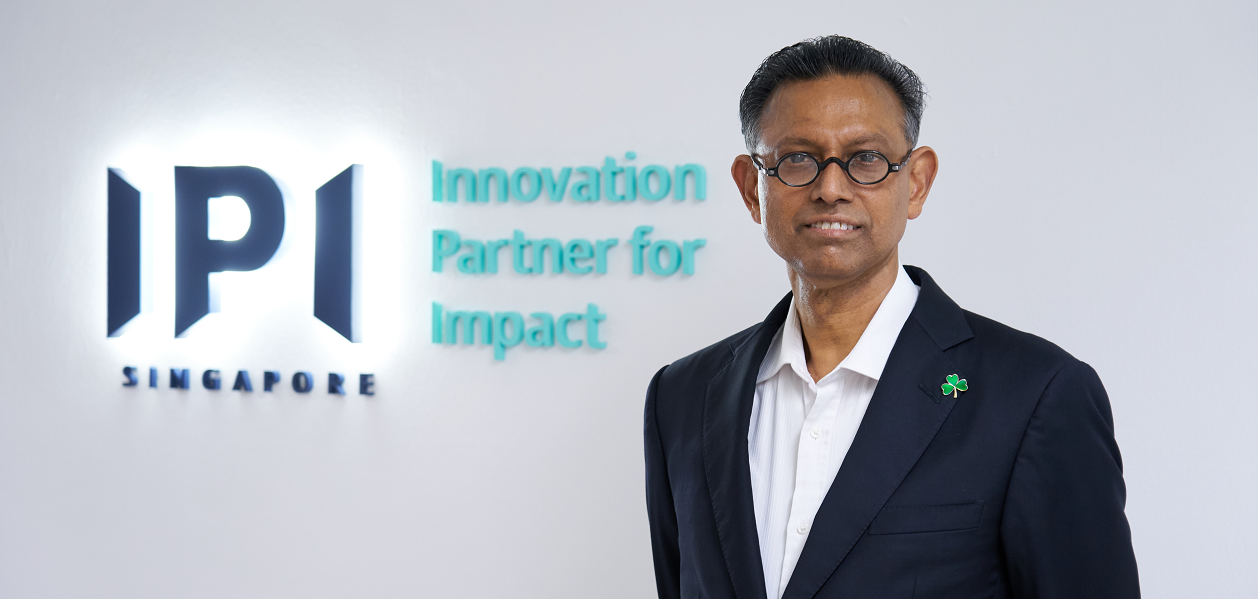Professionalising processes to attract investment
With a keen understanding of the medtech ecosystem, IPI Innovation Advisor Prof Ignatius Rasiah helps companies take their technology from research to market-ready products.
With the goal of advancing innovation while bettering lives, medtech inventors have brought us 3D printed prosthetics, advanced pacemakers that can regulate heartbeats, health monitoring apps equipped with artificial intelligence (AI) and more—all culminating in a US$457 billion industry. In the wake of both disruption and opportunities brought about by the pandemic, one fact remains—medical innovation is driven by patient care.
To this end, IPI Innovation Advisor Prof Ignatius Rasiah specialises in identifying must-have needs of customers that companies can address with innovation. Melding both scientific expertise and business acumen, Prof Ignatius regularly advises medtech start-ups on their commercialisation and go-to-market strategies.
Keeping an eye on key trends
For businesses to make the most of their innovations, it is crucial to keep up with the latest market trends and consumer needs, Prof Ignatius highlighted. Previously, the medtech sector was saturated with digital health apps and devices, he shared. In the wake of the COVID-19 outbreak, however, investments had begun to take a turn as funding agencies and corporations pivoted to more pandemic-relevant areas such as vaccines, telemedicine and robotic sanitation solutions.
“In the post-pandemic scenario, features such as security, safety and remote access are becoming more important,” Prof Ignatius said. “We do see trends in what the user needs and how it’s driving the technology.”
Prof Ignatius, who is currently Programme Director of the Institute for Engineering Leadership at the National University of Singapore (NUS), has held several key positions at national levels including Singapore’s Cardiovascular Taskforce and the SGTech review board at Enterprise Singapore in his 30-year career. His cross-functional and cross-platform understanding of the latest trends in medtech is complemented by over 20 years of commercial experience in research and development (R&D) management.
Prior to his time at NUS, Prof Ignatius was the Vice President for Breakthrough Research at Medtronic. “My core strength lies in being able to take any innovation and translate it into a product that fits somebody’s unmet needs, thereby turning new technologies into marketable products,” he said.
Guiding SMEs towards growth
Reflecting on his experience as a medtech advisor, Prof Ignatius highlighted two companies that stand out. The first was E3A Healthcare, a company focused on non-invasive new-born medical diagnostic and therapeutic devices—particularly wearable technologies.
While E3A had already developed a working product, the company had yet to streamline its value proposition to establish its niche in the regional neonatal market. Through a robust opportunity assessment, Prof Ignatius enabled the firm to map out the entire ecosystem of stakeholders it had to consider, from regulators and distributors to target consumers and their must-have needs. Tapping on Prof Ignatius’s advice and his vast network, E3A managed to set up its advisory board, attract additional investor funding and now has an office in Shenzhen, with an eye on expanding to the rest of Asia.
Prof Ignatius also currently advises Cellivate Technologies, a nanotechnology company that has developed a surface allowing researchers to grow stem cells at more than twice the normal growth rate and can be applied to various applications like building organs for therapy, developing cell based alternative proteins or even growing animal-free cell-based clean meat.
With Cellivate, Prof Ignatius tapped on his industry expertise to professionalise processes such that the company was better positioned to approach investors. “With medtech, you tend to have a lot of research all over the place, but you need to have your documentation in order. Investors in this sector know about requirements like design history files and ISO standards,” he said.
Diving deep into the ecosystem
Prof Ignatius’s experience in managing R&D and product development in the medtech space has given him an excellent understanding of the key players involved in successfully commercialising any new technology. “When you come up with an idea, you have to think about how it fits into the whole ecosystem and the various stakeholders—the regulators, the distributors, the investors, the mode of selling, competitors, possible collaborators and so on,” he emphasised.
While medtech innovators have traditionally come from research-heavy backgrounds, Prof Ignatius advised entrepreneurs to expand their focus from solving a particular problem to thinking about how the company’s product fits into the larger ecosystem. With the expert advice of Innovation Advisors such as Prof Ignatius, SMEs and start-ups alike can keep abreast of the latest trends, develop successful go-to-market strategies, attract additional investor funding and more.
If you have a medtech innovation that you are looking to commercialise, check out IPI’s Innovation Advisor Programme to benefit from expert guidance.

